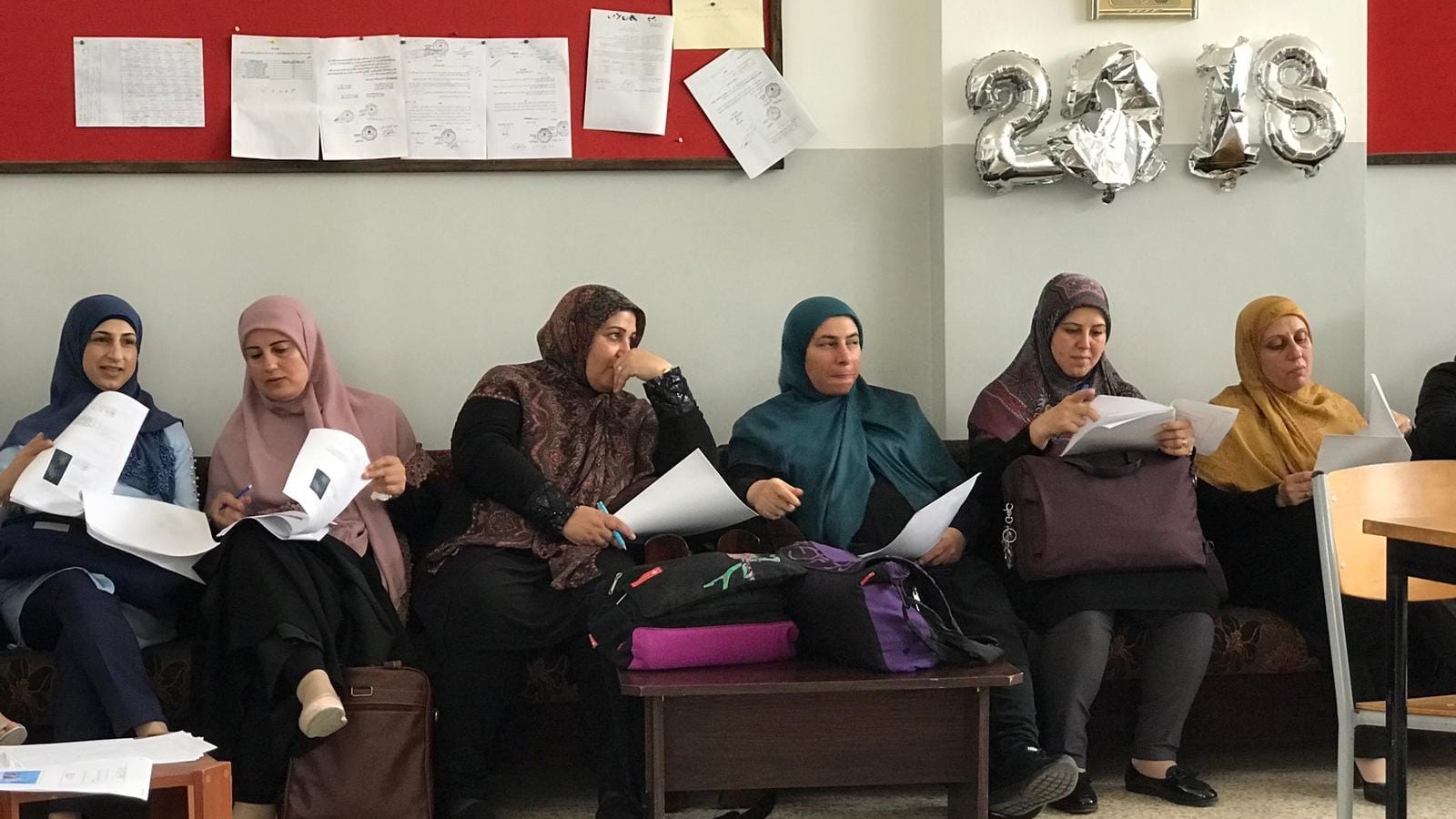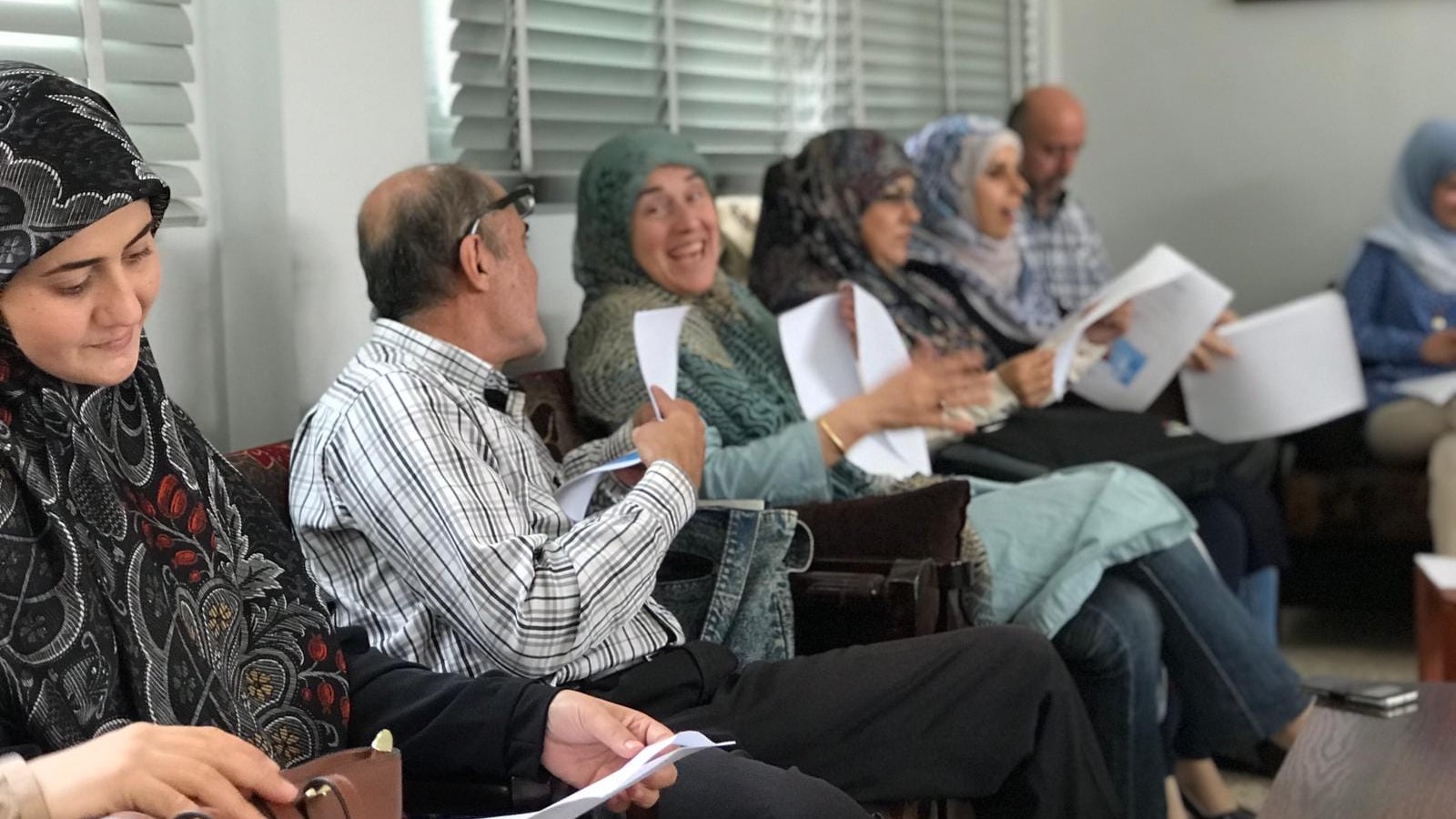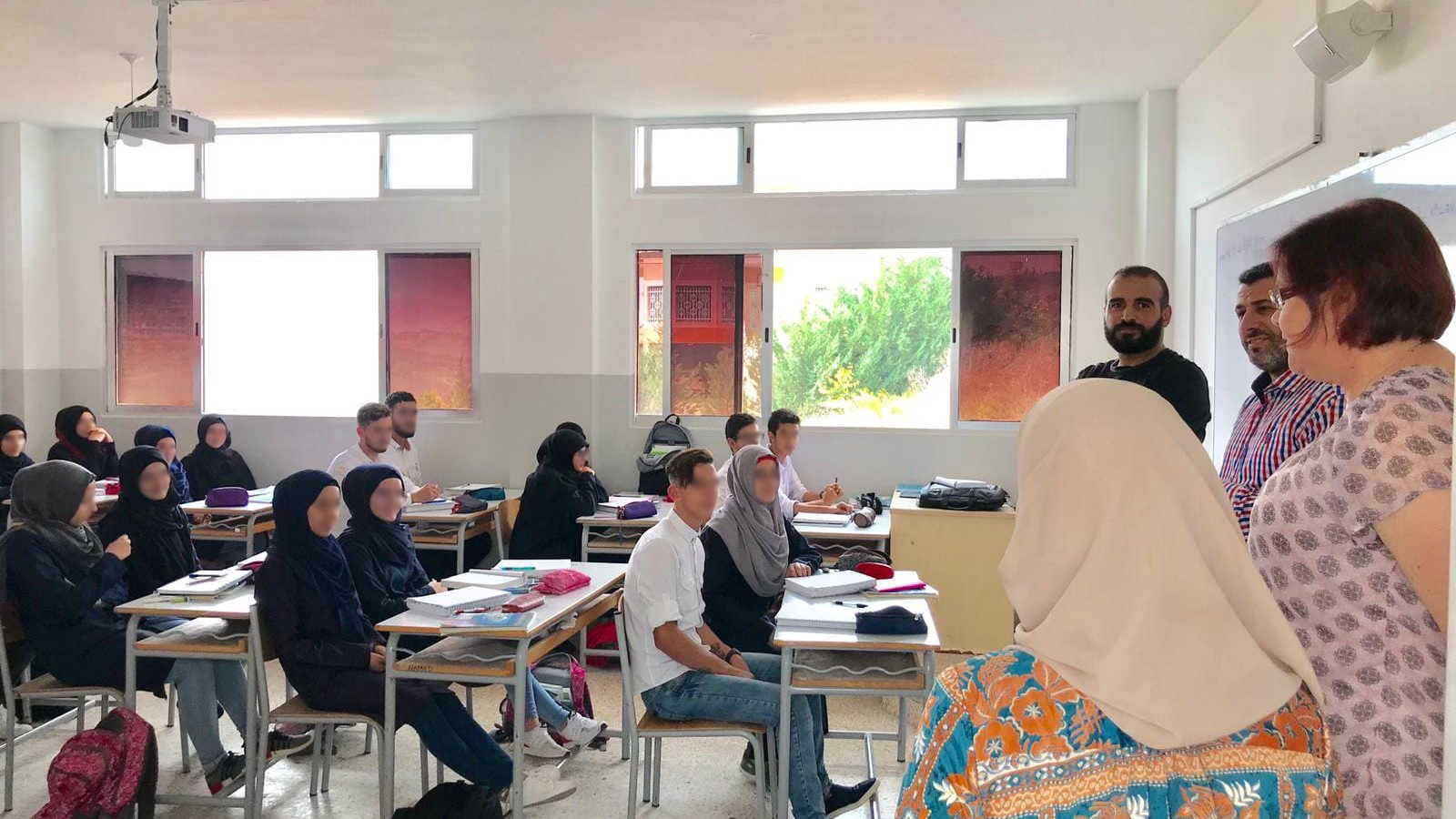On October 18th, 2018, Professor Tuija Turunen, the leader of the UNITWIN/UNESCO Network on teacher education and the UArctic TN, visited the Deir Kifa high school in Lebanon. The high school invited her to speak about the Finnish pedagogy and the use of ICT in teaching. Professor Turunen gave a lecture about the topic "Phenomenon based pedagogy and ICT: How to promote pedagogically sound education with ICT?"
The first school facilities of Deir Kifa high school were built by Finnish peacekeepers in 1988. It was the first school in the area. It is named after a Finnish peacekeeper, Tom Kjällman, who passed away in 1985, in the UNIFIL-operation. The school was expanded in 1992 and in 2018 the school facilities were painted as a part of the Deir Kifa school project, which was funded by the Ministry of Foreign Affairs of Finland. There are about 400 students in the school now. The Deir Kifa high school has requested training cooperation with Finland and the visit was organized in terms of that, within the UNITWIN/UNESCO network on Teacher Education. The meeting was organized together by the Deir Kifa high school, Finnish UNIFIL troops and the Embassy of Finland.

Local teachers
In her presentation, professor Turunen explored the topics of phenomenon-based education and the use of ICT in Finnish schools. According to her, things we might consider while talking about education, are the context in which teaching and learning take place, how to translate national curricula into local conditions and the role that digitalization does have in future learning and citizenship.
Professor Turunen mentioned the concept of 21st century skills, which are the skills and competences children and young people need in order to act as active citizens. ICT skills and social responsibility can be seen crucial. These 21st century skills, combined with subject specific knowledge and transversal knowledge, are vital in order understanding and trying to prevent climate change. Citizen science is a way through which every person can help to conduct scientific research, without degrees. This contributes to understanding of our world and making it a better place.

Local teachers
Professor Turunen also presented some examples of the use of ICT in teaching and learning in Finland. Playful learning and digital platforms, as well as inclusive and affective pedagogies have been adapted to Finnish schools. Innovative approaches to education for sparsely populated areas have been made, for example in the form of digital classrooms.
Professor Turunen described phenomenon-based learning including the following principles. Starting point for learning should be a real-life problem. Learning should combine several schools subjects and have a student-centered pedagogical approach as well as cooperative learning. The roles of teacher and student should be transformed from the typical roles.

Tuija Turunen with local teachers and students
According to Turunen, authentic learning can be accomplished through meaningful learning tasks. Having a real-world relevance in the learning tasks promotes the transfer of knowledge. Interdisciplinary perspectives and multi-faceted learning, as well as multiple perspectives are needed in order to educate students to navigate in diverse and ever-changing global world.
Photos: Tuija Turunen
Text: Noora-Maaria Kinnunen
